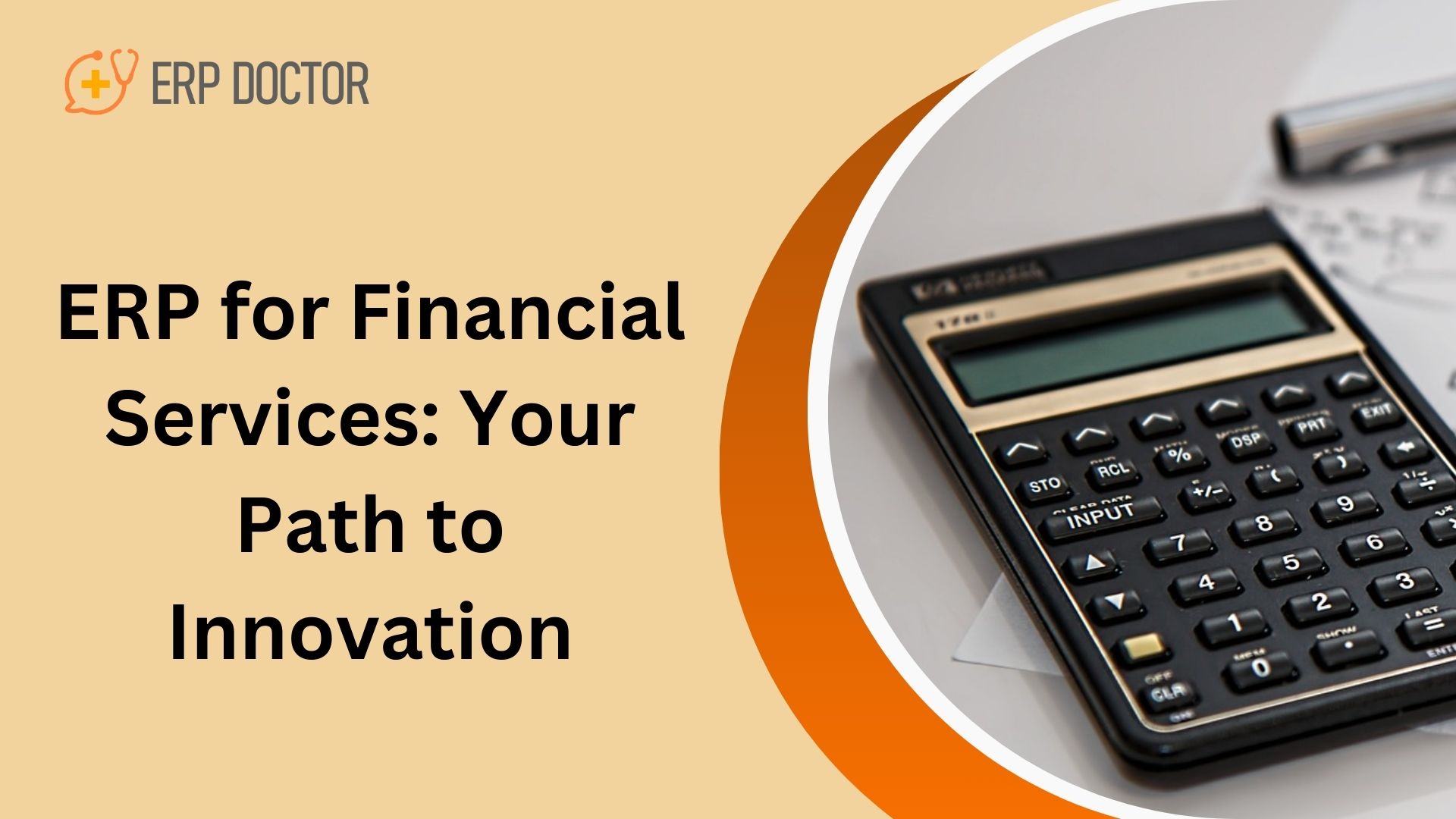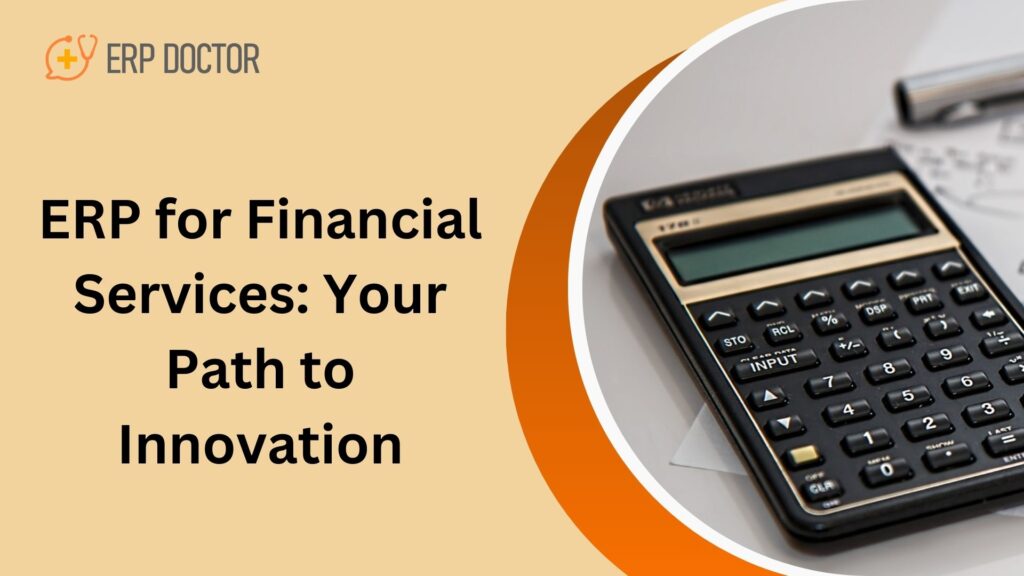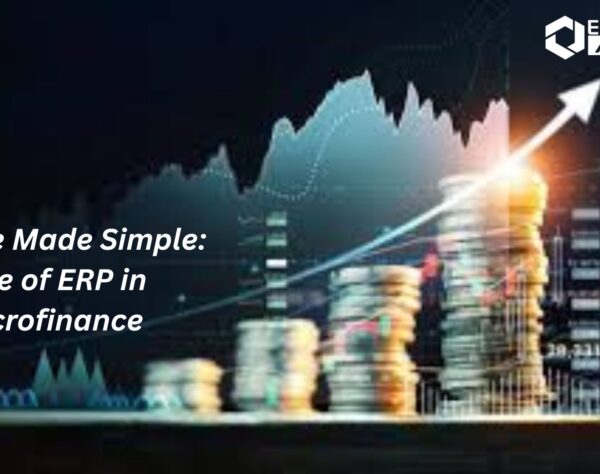
ERP for Financial Services: Your Path to Innovation

Revolutionizing Financial Services: The Power of ERP and CRM
In the fast-paced world of financial services, staying ahead of the competition requires more than traditional tools. As the industry evolves, the adoption of advanced technology is imperative. Enterprise Resource Planning (ERP) systems have emerged as the cornerstone for innovation, enabling financial institutions to streamline operations, enhance customer experiences, and improve decision-making. With solutions like SAP Business One, financial institutions can optimize their operations and make data-driven decisions. Additionally, integrating Salesforce enables personalized customer engagement, allowing financial institutions to build stronger relationships and drive business growth.
Understanding ERP in Financial Services
What is ERP?
ERP, or Enterprise Resource Planning, is a unified software platform that integrates core business functions like accounting, human resources, compliance, and customer relationship management. In the financial services industry, ERP systems are tailored to manage complex processes, ensuring seamless communication and efficiency across departments.
Why ERP for Financial Services?
- Centralized Data Management: ERP eliminates data silos, providing a single source of truth for better insights.
- Regulatory Compliance: Helps institutions stay compliant with evolving regulations.
- Scalability: Adaptable to the growing needs of financial organizations.
Benefits of ERP for Financial Services
- Streamlined Operations
ERP systems automate repetitive tasks such as reconciliation, payroll management, and invoice processing. This not only reduces manual errors but also allows teams to focus on strategic initiatives. - Enhanced Decision-Making
With real-time data analytics, ERP systems empower financial institutions to make informed decisions. Insights from dashboards help in identifying trends, predicting risks, and planning future strategies. - Regulatory Compliance and Risk Management
Financial services operate under stringent regulatory frameworks. ERP ensures compliance with laws and standards by providing tools for auditing, reporting, and risk management. - Improved Customer Experience
A well-implemented ERP system integrates customer data, enabling personalized services. This leads to enhanced customer satisfaction and loyalty. - Cost Efficiency
By automating processes and optimizing resource allocation, ERP systems significantly reduce operational costs.
Key Features of ERP for Financial Services
- Integrated Financial Management
ERP provides a holistic view of financial transactions, streamlining accounts payable and receivable, budgeting, and reporting. - Customer Relationship Management (CRM)
Incorporates CRM modules to manage customer interactions, track preferences, and ensure high-quality service delivery. - Regulatory Compliance Tools
Built-in compliance modules ensure adherence to financial regulations like IFRS and GDPR. - Advanced Analytics
ERP systems come equipped with AI-driven analytics, offering predictive insights for better financial planning. - Mobile and Cloud Access
Modern ERP platforms provide mobile and cloud-based access, ensuring flexibility and remote operations.
Challenges in Implementing ERP in Financial Services
- High Initial Costs
The upfront investment in ERP implementation can be substantial. However, the long-term ROI justifies the expense. - Resistance to Change
Employees accustomed to legacy systems may resist adopting new technology. Proper training and change management strategies are crucial. - Integration Complexities
Integrating ERP with existing systems can be challenging, requiring robust planning and technical expertise. - Data Security Concerns
Given the sensitive nature of financial data, ensuring the security of ERP systems is paramount.
Real-World Examples
- Banking Sector
A leading global bank adopted an ERP system to integrate its operations across multiple countries. The result was improved compliance, reduced operational costs, and better customer engagement. - Insurance Industry
An insurance provider leveraged ERP to streamline claims processing and policy management, reducing the average processing time by 30%. - Investment Firms
Investment firms use ERP for portfolio management, ensuring accurate financial reporting and risk assessment.
Steps to Implement ERP in Financial Services
- Define Objectives
Clearly outline what you aim to achieve with the ERP system, such as improved efficiency, better compliance, or enhanced customer service. - Choose the Right ERP Solution
Select an ERP platform tailored for financial services. Evaluate options based on features, scalability, and cost. - Engage Stakeholders
Involve key stakeholders, including employees, IT teams, and management, in the decision-making process. - Plan the Implementation
Create a detailed implementation roadmap, addressing timelines, resources, and potential challenges. - Train Employees
Provide comprehensive training to ensure smooth adoption of the ERP system. - Monitor and Optimize
Post-implementation, regularly monitor the system’s performance and make adjustments as needed.
The Future of ERP in Financial Services
The integration of emerging technologies like AI, machine learning, and blockchain is shaping the future of ERP in financial services. AI-driven insights enhance decision-making, while blockchain ensures secure and transparent transactions. The adoption of cloud-based ERP systems is also on the rise, offering unparalleled flexibility and scalability.
Unlocking Innovation in Financial Services: The Power of ERP
ERP systems are not just tools but catalysts for innovation in the financial services industry. From streamlining operations to ensuring regulatory compliance, ERP transforms the way financial institutions operate. By investing in ERP, financial services can unlock new opportunities, enhance customer satisfaction, and achieve sustainable growth. If your organization is ready to embrace innovation, explore ERP solutions tailored for financial services today. Take the first step toward a smarter, more efficient future. With the right ERP solution, you can stay ahead of the competition and achieve long-term success. Discover how SAP Business One can help you achieve your business goals.
Visit ERP Doctor for Expert Solutions and Support
Want to speak to an expert? Fill in the form below, and we will be in touch with you shortly!
Warning: Trying to access array offset on value of type null in /home/u231991539/domains/erpdoctor.in/public_html/wp-content/plugins/wpforms/includes/class-frontend.php on line 109







